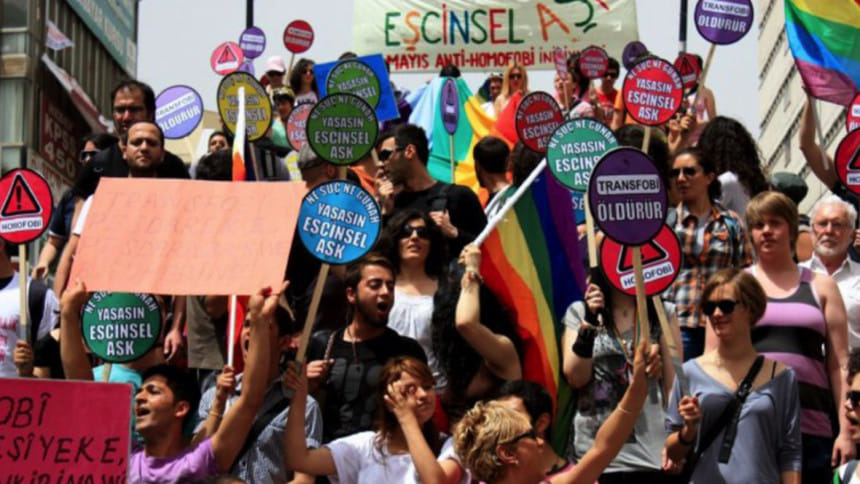Homophobic people often have psychological issues: Study

A new research suggests that homophobic attitudes may have a lot to say about the people who hold them.
University students in Italy revealed in a new study that people having a strongly negative view towards gay people also have high levels of psychoticism and coping mechanisms which are not appropriate when compared to people who accept homosexuality, reports Live Science.
However, this does not mean that homophobic people are psychotic, as the study only suggests that they have some psychological issues. Psychoticism is rather a personality trait demonstrating hostile behavior, anger, and aggression towards others, lead researcher Emmanuele Jannini, an endocrinologist and medical sexologist at the University of Rome Tor Vergata, told Live Science.
"The study is opening a new research avenue, where the real disease to study is homophobia," Jannini further said.
The psychology of homophobia
Homophobia has been found to be a complex subject in earlier research, some of which suggest that people with deeply negative reactions to homosexuals often show desires of same-sex behaviours themselves. However, some others oppose the idea suggesting that homophobic people are truly averse to same-sex attraction. Some other factors, including religiosity, sensitivity to disgust, hypermasculinity and misogyny, also seem to play a role in homophobic beliefs according to an article by Jannini and his colleagues published in The Journal of Sexual Medicine.
Unfortunately, the mental health or psychopathology of homophobic people has always been overlooked. The researchers surveyed among 551 university students of age 18 to 30 on the levels of their homophobia and psychopathology, which included depression, anxiety and psychoticism, in the new study. The participants rated how strongly they agreed or disagreed with 25 statements, such as: Gay people make me nervous; I think homosexual people should not work with children; I tease and make jokes about gay people; and It does not matter to me whether my friends are gay or straight, etc. to check their level of homophobia on a scale of five.
The questionnaire also asked the participants about the style of their attachments, categorizing them on how people approach relationships. People seem to feel comfortable getting close to others and vice versa in healthy or secured attachments, while insecurely attached people were found to avoid intimacy, being clingy, or desire closeness while being uncomfortable trusting others.
The students were also asked about their coping strategies, or the defense mechanisms used by people while facing situations which are unpleasant or scary. A healthy or mature defense may include a person's ability to regulate emotions without depending on others for validation, while an unhealthy or immature defense mechanism is marked with impulsive actions, passive aggression or denial of a problem.
Homophobia and anger
A person with better mental health as suggested by their responses to the questionnaire is less likely to show homophobic behaviour, according to the research. On the other hand, people who have fear and tendency to avoid intimacy, and are uncomfortable with close relationships with others, were found to be significantly more homophobic in comparison. The research also suggests that homophobic behavior is observed more among people with immature defense mechanisms.
Homophobia is also found to be linked with high levels of hostile behavior and anger, measured as psychoticism.
However, other psychopathological issues such depression and neurotic defense mechanisms like hypochondria or repression were found to be linked with lower levels of homophobia.
Though the research findings term homophobia as a dysfunctional personality trait, this is not the whole story. As Jannini said, Homophobia is can be culturally induced, and therefore factors like religion and conservative values probably interplay with such traits.
Presently, the researchers are expanding the study among the students in Albania, said Jannini, adding that they are also studying how homophobic attitudes may be influenced by the fear of not being "man enough".

 For all latest news, follow The Daily Star's Google News channel.
For all latest news, follow The Daily Star's Google News channel. 



Comments